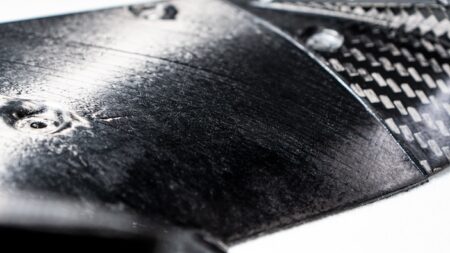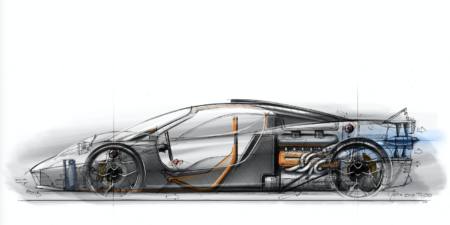ContiTech has unveiled a transmission crossbeam constructed from fiberglass-reinforced polyamide BASF Ultramid. The Germany manufacturer states that its expertise in lightweight construction has helped in the development of the piece, and it will continue to use its knowledge to ‘conquer other areas of applications where metal once dominated’.
The rear axle transmission crossbeam is to be used in the Mercedes-Benz S-Class, and offers a weight saving of around 25 percent when compared to diecast aluminum versions.
“The new rear axle transmission crossbeam is a milestone in the use of polyamides in the chassis and has the potential to set a new trend in the automotive industry,” says Kai Frühauf, head of the ContiTech Vibration Control business unit. “Polyamide is increasingly replacing metal. And we’re right there in the forefront helping manufacturers gradually replace metal with high-performance plastics.”
The rear axle transmission crossbeam from ContiTech is used in Mercedes-Benz vehicle models with all wheel drive – with the exception of the AMG range. ContiTech states that despite the reduction in weight, the component still boasts optimum strength, good NVH performance, and high crash-protection. As a central component of the rear axle, it supports forces and torques of the rear axle transmission.
“Absolute precision is called for in the design and production of the transmission crossbeam for the rear axle – particularly in terms of strength and dimensional accuracy of the component,” added Diethard Schneider, head of lightweight construction pre-development at ContiTech Vibration Control. “Only when all the properties are exactly right can the component be assembled in the axle system without any problems. The fact that premium suppliers are among the forerunners shows the trust and confidence that engineers have today in the performance of our polyamide components for engines and chassis.”
Polyamide components make an important contribution in terms of reducing weight and making vehicles more environmentally friendly. Unlike aluminum, polyamide can be shaped at lower temperatures, thus requiring significantly less energy in the manufacturing process. There is also a wide range of possibilities in recycling.




